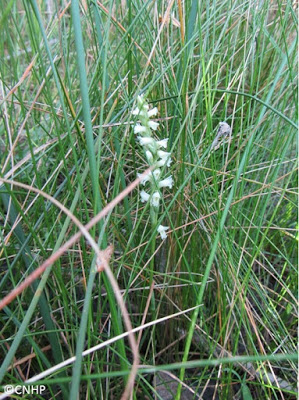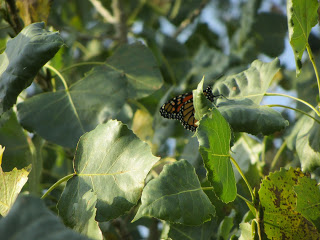In late August, our botany team explored areas of West Denver hoping to relocate populations of the rare Ute ladies’ tresses orchid (Spiranthes diluvialis). The orchid, which is listed as Threatened by the U.S. Fish and Wildlife Service, has highly fluctuating population numbers from year to year. Last year in August 2014, no orchids were found at the West Denver occurrence. This summer, Pam Smith and Bernadette Kuhn were only able to locate six orchids at a location where hundreds have previously been documented. The orchids contain an array of flowers that curve along the top of the plant, like a white spiral staircase. Once the orchid’s white flowers turn brown and the fruits mature, the plants are nearly impossible to spot in the tall grasses, rushes, and coyote willows that are typically found in suitable Ute ladies’ tresses habitat. Only one of the orchids this year was in bloom (see photo below). While surveying, we were excited to spot a monarch butterfly resting in a plains cottonwood (see second photo below).
 |
| The lovely, rare and Threatened Ute ladies’ tresses orchid (Spiranthes diluvialis) in bloom. |
 |
| A monarch butterfly rests in a plains cottonwood tree in West Denver. |




